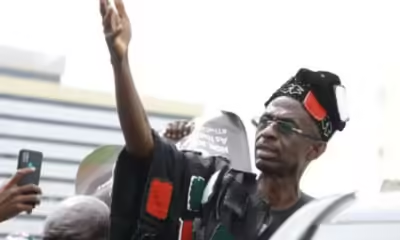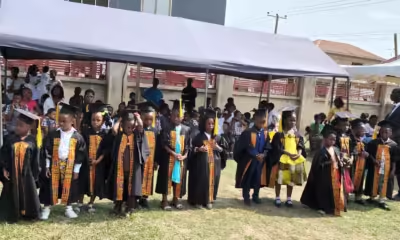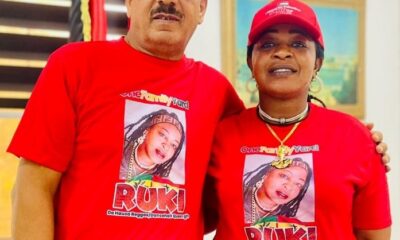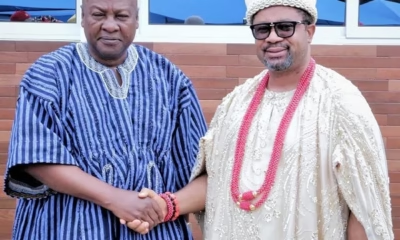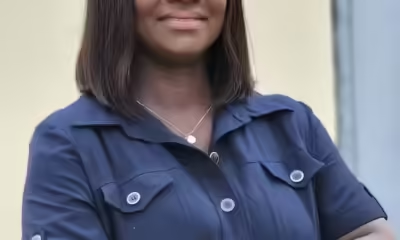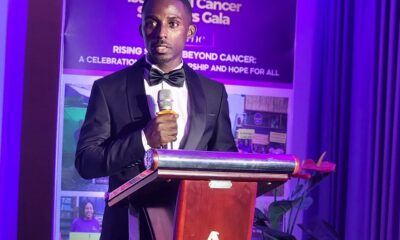Uncategorized
Make Council of State active… Veep charges members
Published
2 months agoon
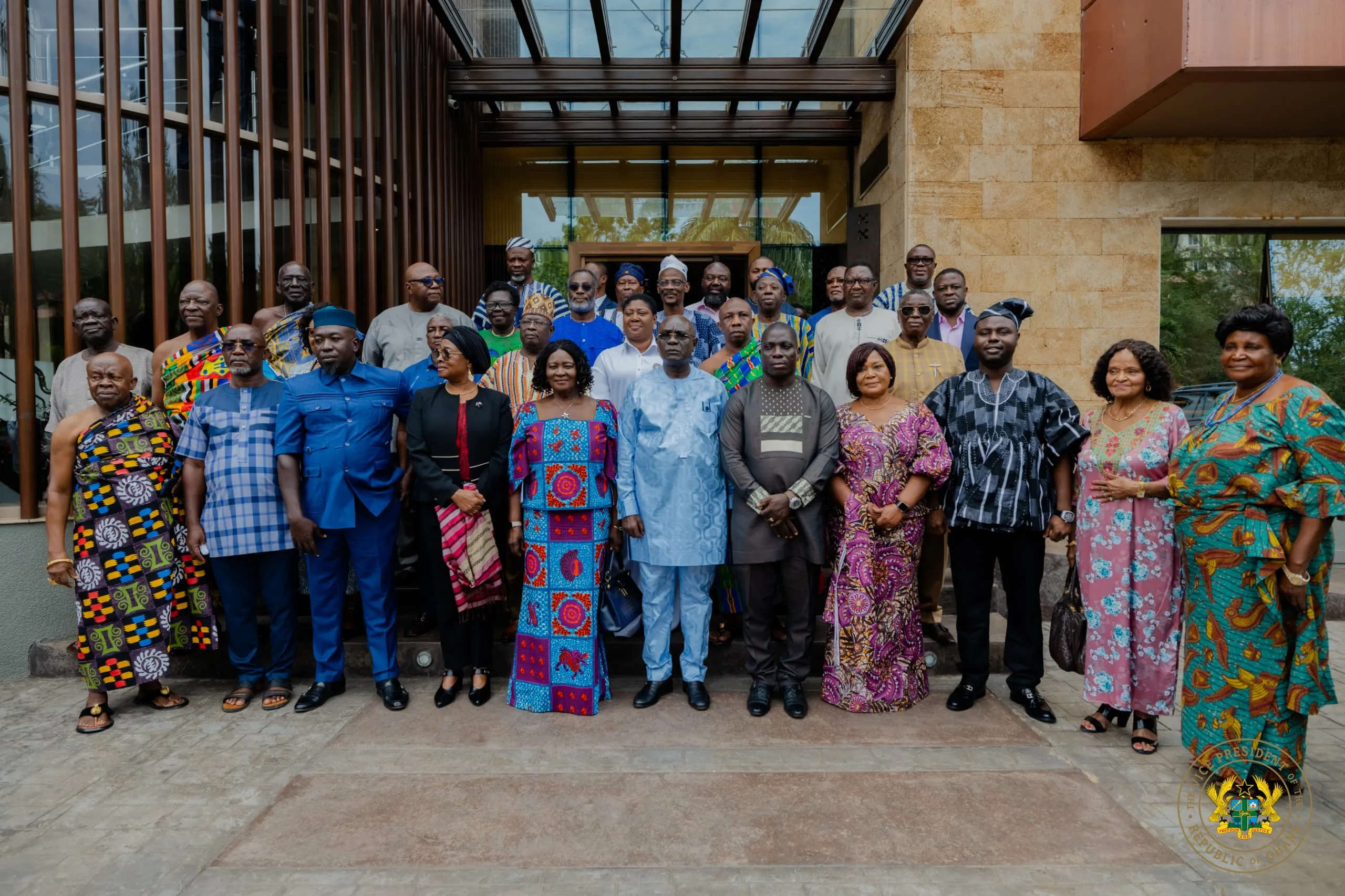
The Vice President, Professor Naana Jane Opoku-Agyemang, has charged the newly-constituted Council of State to transform itself from the perceived “passive advisory body” into an “active institution” that demands accountability.
Vice President Prof. Opoku-Agyemang said the Council remained pivotal to national development and must contribute to the shaping of government policies rather than being a rubber stamp of predetermined decisions.
“You must endeavour to contribute to the shaping of government policies at their inceptions and ensure that major policy choices are meticulously guided by the principles of accountability, equity and long-term mutual interests.
“Your tenure must redefine the Council’s role and transform it from the perceived passive advisory body into an active institution that anticipates challenges, offers bold recommendations and demands accountability,” she said.
The Vice President made this demand at the orientation for members of the 9th Council of the Fourth Republic at Peduase in the Eastern Region yesterday.
According to her, Ghana was at a pivotal moment of its democratic experiment and citizens are unequivocal in their demand for a paradigm shift from how things have been done over the years.
“They demand a governance structure that elevates national development above partisan proclivities (and only) institutional resilience that transforms above the transients of political power” could deliver that structure, the Vice President said.
This demand, she said, was evident in the mandate given the John Mahama government to reset the country; a challenge she said the administration has accepted.
To her, the reset agenda was not a mere rhetoric but a pressing demand to overhaul the systems that have hindered the country’s advancement and create a governance model that is effective, forward-looking and suited to the challenges and opportunities of the 21st century.
“The Council of State is pivotal to this overarching mission of national renewal and transformation” and must “dispel the popular accusation of merely existing to validate already determined decisions”, she said.
The Chairman of the Council, Edward Doe Adjaho, said with the vast and varied experiences of members, they were ready to help shape the country’s direction through steady leadership and clear vision with a commitment to preserve the national interest and integrity and speaking truth to power.
Mr Adjaho, a former Speaker of Parliament urged that the Council leveraged its prestige and visibility to guide the President and other institutions of state and reassure young people that, there is a future for them.
“Let us try to offer fresh ideas from our accomplishments, the depth of our traditional leadership wisdom, private and public experiences to give deep meaning to our tasks and advance the needs of Ghanaians and not the political class.
“Let us endeavor to put people first. Upholding the law and ensuring genuine care for people must be paramount in our deliberations when we proffer advice to the President of the republic. We must speak truth to those that we advise, engage with leadership and the people, connect with policy decisions to tackle the challenges facing our democracy,” he stressed.
The above, he said, was the surest way their deliberations could benefit both government and the Ghanaian public.
“Our performance, evaluations and recommendations, will speak to the relevance of the ninth Council,” he stated.
FROM JULIUS YAO PETETSI,
PEDUASE
You may like
Uncategorized
Find alternative sources of funding for HIV- African leaders told
Published
2 weeks agoon
April 5, 2025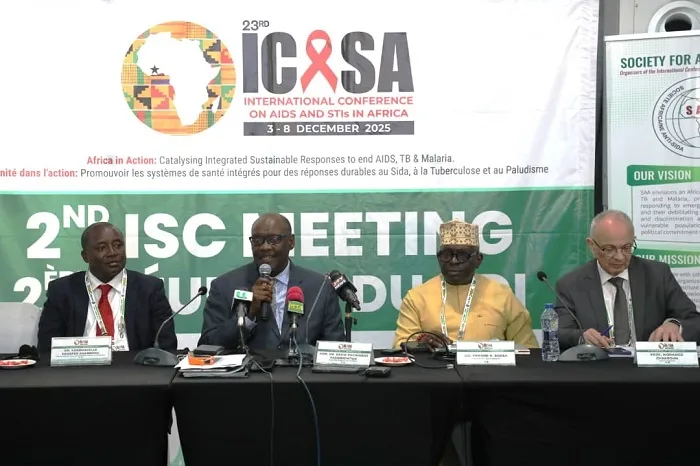
There is growing pressure on Ghana to secure alternative sources of funding for the control and management of HIV due to the United States foreign aid funding cuts.
The Director-General of the Ghana AIDS Commission, Dr Kharmacelle Prosper Akanbong, made this disclosure on Friday at the second International Steering Committee meeting held in Accra.
It formed part of preparations for Ghana to host the 23rd International Conference on AIDS and Sexually Transmitted Infections in Africa (ICASA) scheduled for December 3-8, 2025 and expected to attract over 12,000 participants from different backgrounds, including healthcare professionals, policy makers, scientists, and civil society organisations.
Dr Akanbong explained that with the huge number of patients with the virus, it would be important for government to find alternative sources of funding to avert what could be a calamity.
According to him, “The issue of sustainability has been on the table for some time, but with likely reductions in U.S. support, we must act quickly. African governments need to build financial resilience and present strong investment cases to maintain our programmes,” he stated.
He described Ghana’s hosting of ICASA as a major step in the country’s HIV response.
“For the first time, Ghana is hosting ICASA. As the local organising committee, we have a number of responsibilities. We’re expected to provide scholarships for about 500 young health workers and students. We also have to make sure venues such as the Accra International Conference Centre were ready,” he mentioned.
Dr Akanbong further noted that beyond its public health value, the conference would also have economic and research benefits, adding that “this is an opportunity to showcase Ghana’s progress in HIV response and to position the country more visibly in global health discussions.”
The president of the Society for AIDS in Africa (SAA) and Chair of International Conference on AIDS and Sexually Transmitted Infections in Africa (ICASA), Dr David Pagwesese Parirenyatwa, also called on Africans to wake up to the challenge of strengthening health systems on the continent.
He said the continent cannot continue to rely on donor funding but must now look inward to find other avenues to prioritise the health of its people.
He said the continent had depended on donor funds for far too long which poses a security risk.
“This is a wakeup call, we cannot continue to rely on American aid. We must begin to mobilise our own resources from oil, gold, platinum and other natural resources,” he stated.
Prof. Muhammad Chakron, Vice President of the Society for AIDS in Africa, said ICASA 2025 comes at a time when global health funding is under strain.
He urged African countries to increase their investments in HIV, TB, malaria, and health research.
“This is necessary to keep making progress, and we expect it to be thoroughly discussed at the upcoming conference,” he added.
By Jemima Esinam Kuatsinu
Uncategorized
Increase electric vehicle charging stations —UNDP report
Published
3 weeks agoon
March 28, 2025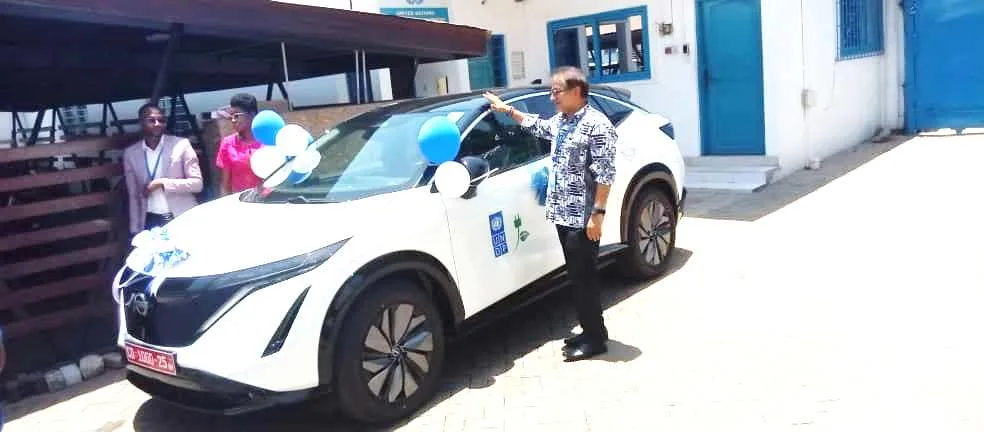
Ghana has been urged to increase the number of Electric Vehicle charging stations in the country to correspond with the increased number of electric vehicles in the country.
Currently there are only seven electric vehicle charging stations in the country, despite the increasing number of electric vehicles, a report by the United Nations Development Programme (UNDP) has revealed.
Titled “Market Opportunity Study Report of EV Charging Stations in Ghana,” the report said as the country advances towards a low-carbon and climate-resilient economy, the transport sector remained a key area for transformation.
The 28-page report also revealed that despite the significant market potential for EVs, all seven public charging stations were located in Accra, whilst the remaining regions had none.
Speaking at the launch of the report yesterday in Accra, the consultant of the report, Dr Godwin Ayetor, said looking at Ghana’s power challenges, there was a need for stakeholders to urgently adopt sustainable measures to address our energy challenges.
He noted that most of the EV charging stations had broken down due to power fluctuation challenges, as well as a lack of skilled people to install and maintain these charging stations as investors run at a loss.
“I will say the challenges we are facing here are international, not unique to Ghana, and as we have been resilient with other issues, I believe that you will be able to overcome, especially with UNDP having an electric vehicle.
Another challenge is that most mechanics are engine mechanics. Now EVs do not have engines, and so most mechanics will lose their jobs. Therefore, there will be expert deficiency to work on these vehicles when they become faulty,” Dr Ayetor said.
The Deputy Director in Charge of Energy Efficiency Regulations at the Energy Commission Ghana, Mr Kennedy Amankwa, said currently, the Commission was putting together the regulations for EV charging stations.
He explained that the regulation would tackle safety, expectations and everything that would make the EV charging station work safely and effectively, stressing that there was a strong growth potential with the right policy.
“Energy Commission, we are mandated to regulate the electric charging stations. The Ministry of Transport is responsible for the vehicles. So we started by drafting the standards with the Ghana Standards Authority, and after the development of the standards, we go ahead to engage stakeholders and parliament for its approval,” Mr Amankwà said.
The UNDP Representative to Ghana, Mr Niloy Banerjee, said the UNDP had taken the lead in acquiring its EV and charging station in reducing carbon emissions, and local air pollution and thanked the government for the collaboration with them
BY BERNARD BENGHAN
![• The Ga Mantse Tackie Teiko Tsuru II [Middle] cutting the Anniversary Cake being assisted by Dr Samuel Bassah Quansah [right] Prof Amevi Acakpovi [2nd from right] and others Photo Lizzy Okai.](https://netnewsghana.com/wp-content/uploads/2025/03/The-Ga-Mantse-Tackie-Teiko-Tsuru-II-Middle-cutting-the-Anniversary-Cake-being-assisted-by-Dr-Samuel-Bassah-Quansah-right-Prof-Amevi-Acakpovi-2nd-from-right-and-others-Photo-Lizzy-Okai-scaled.webp)
The Accra Technical University (ATU) on Thursday held a special ceremony to climax its 75th anniversary on the school premises.
It was themed ‘75 years of impacting society and driving innovation.’
As part of the anniversary activities, the school organised a series of events including debates with other Technical Universities, lectures on innovation, donation to prison inmates and a clean-up exercise.
Representing the Minister of Education, Haruna Iddrisu, the Director-in-Charge of Tertiary Education, Dr. Emmanuel Newman highlighted the need for stronger collaboration between academia and industry.
He charged the university to produce competitive professionals who are equipped to meet the current needs of the nation.
Dr. Newman also disclosed the government’s commitment to expanding infrastructure in tertiary institutions, calling on ATU’s alumni to contribute towards a 500-bed hostel, to be named the Alumni Hostel.
“The government will also continue to work with relevant stakeholders to expand infrastructure in the tertiary institutions,” he said.
The Special Guest of Honour, Ga Mantse King Tackie Teiko Tsuru II, commended the Institution for their immense contribution to the country and urged them to continue to nurture more talents.
“Education uplift communities, preserves our heritage, build resilient societies and our commitment to fostering institutions like Accra Technical University,” he explained.
The Ga Mantse also charged students to embrace innovation and enterprise, urging them to apply their knowledge and relentlessly pursue excellence.
Professor Amevi Acakpovi, the acting Vice Chancellor of ATU lauded the Ga Mantse’s presence at the celebration, describing him as a visionary leader dedicated to education and youth development.
He said the University has expanded academic progress to meet technological development and remained a center of excellence in practical knowledge.
By Linda Abrefi Wadie

Tooth decay cases rises in Tema

Cake Tekniks holds 59th graduation ceremony

Volta College Foundation donates GH¢9,000 to 9-yr-old fire victim
Trending

 Politics7 months ago
Politics7 months agoVoter Register Discrepancies: NDC to stage nationwide protests against EC

 News8 months ago
News8 months agoArise Royals Montessori School Marks 2nd Graduation.

 Entertainment9 months ago
Entertainment9 months agoGhanaian musician Champions Gaza Peace with New Track

 News4 months ago
News4 months agoKing of Igbo Community in Ghana congratulates Mahama as President-elect of Ghana.

 More8 months ago
More8 months agoYoung people urged to develop their talents

 Entertainment10 months ago
Entertainment10 months agoSteps to receive an official GWR certificate – Details from mother of a Ghanaian record holder

 News10 months ago
News10 months agoCancer Support Network Foundation holds gala

 Tech9 months ago
Tech9 months agoWatch out for sharks: The bizarre history of internet outages





